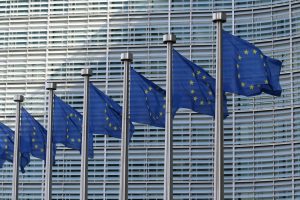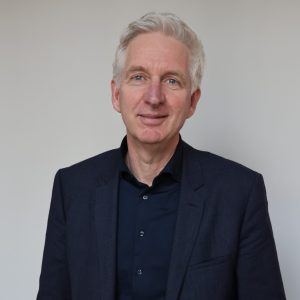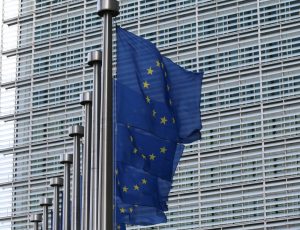Conversation Series: Sustainability in European & American Markets with Max Markrich
Welcome to our Conversation Series, where we discuss topics relevant to our work around impact and sustainability. In this piece, our associate Gretchen Bruening talks to our director Max Markrich about the differences he sees between European and American markets and his experience working in the DC office.
Gretchen Bruening: You worked in the Amsterdam office at Steward Redqueen for several years before opening the DC branch. What are the biggest differences you notice between the European and American markets?
Max Markrich: There’s a big difference in how people talk about sustainability. Americans have a short sense of history and a long sense of geography; the EU is the opposite. I think that provides a lot of insight into how sustainability issues are viewed in the US versus the EU. I remind myself how big and diverse the US is and try not to generalize too much, especially since my expertise is DC-specific. But I see that the conversations in the US, talking about the business case for diversity, equity, and inclusion (DEI) and the role of business in society to address social issues, are already a given in the EU, where the focus is more on environmental issues and carbon footprints.
GB: Sustainability seems more politically charged in the US than EU, which plays into how it is perceived as an issue.
MM: It’s politically charged in both places but it manifests differently in each. Financial sector clients in the US have concerns about what regulation is coming down the pipeline, wondering if this is a business risk to report on. But in the EU, SFDR has already arrived. In general, the financial sector sees ESG as mainstream in the EU, but ESG-hushing is more common in the US because of backlash against being labeled “woke.” In the EU, the backlash comes from greenwashing, i.e., companies aren’t doing enough, not from anti-ESG sentiment like in the US where companies are at times now criticized for doing anything at all.
GB: Do you see the US trending towards EU-like policy or staying on a separate path regarding sustainability?
MM: I’m hesitant to predict the future, but I could see a mainstreaming of sustainable finance and of corporate efforts to report of ESG and DEI metrics. From a company’s perspective, there’s a clear business case in my opinion; sustainability practices help them to attract talent, gain a competitive edge, raise capital, and reduce risk.
Although there is some backlash now for sustainability efforts, I could see it petering out moving forward. The current lawsuits from attorneys general about state pension funds raise a valid question, and I could see it reshaping how companies do due diligence and create exclusion lists. Companies will be cautious in public about attracting ire from people who don’t like ESG but will continue to do ESG work behind the scenes.
GB: What are some of the challenges of working in DC?
MM: We opened this office to be closer to existing clients (DFIs, private sector, multinationals, etc.), and to deepen those relationships. We want to generate new opportunities and move into areas in which we should operate more, such as public affairs and industry associations. However, DC is a much more competitive space, and it’s much more challenging to break into the market if you’re not already an established player. We’re working to demonstrate our competitive edge to potential clients, including our global experience and European perspective. But it’s important to remember that the DC office is still relatively new, and developing personal relationships takes time and patience.

















